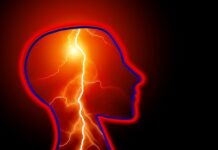In the pursuit of a healthy lifestyle, it is essential to understand the significance of macronutrients – the fundamental elements that make up the foundation of our diet.
Macronutrients, commonly known as “macros,” refer to the three key nutrients that provide the body with energy and serve as building blocks for various physiological processes. These essential nutrients are carbohydrates, proteins and fats, and they play a crucial role in maintaining overall health and well-being.
1. Carbohydrates: The Body’s Primary Energy Source. Carbohydrates are the primary source of energy for the body, especially for the brain and muscles, and provide four calories per gram. They are composed of sugar molecules, which can be further categorized into simple and complex carbohydrates. Simple carbohydrates, such as glucose and fructose, are found in fruits, honey and processed sugars. On the other hand, complex carbohydrates, including starches and fiber, are present in grains, legumes and vegetables.
When consumed, carbohydrates are broken down into glucose and absorbed into the bloodstream. This glucose provides the immediate energy required for daily activities and exercise. Additionally, carbohydrates help spare protein from being used as an energy source and contribute to the regulation of various physiological functions. Examples of simple carbohydrates include apples, bananas and table sugar, while complex carbs are found in brown rice, quinoa and sweet potatoes.
2. Proteins: the Body’s Building Blocks. Proteins are essential for growth, repair and maintenance of body tissues, also providing four calories per gram. They are composed of amino acids, which are often referred to as the building blocks of proteins. There are 20 different amino acids, and our bodies can produce some of them. However, there are nine essential amino acids that must be obtained from the diet.
Proteins are involved in numerous bodily functions, including enzyme production, hormone regulation and immune system support. They are particularly vital for … everyone! Protein is the most important macronutrient to get right when figuring out your body’s needs. It’s not just for athletes and bodybuilders, but also for individuals trying to avoid sarcopenia (muscle wasting). Examples of protein include animal sources like chicken, fish and eggs, along with plant sources like beans, lentils and tofu.
3. Fats: the Satiating Energy Reserves. Fats, also known as lipids, are a concentrated source of energy, provide nine calories per gram, and are crucial for various physiological processes. They are classified into saturated, unsaturated and trans fats. Unsaturated fats are considered healthy and can be further divided into monounsaturated and polyunsaturated fats.
Fats play a significant role in supporting cell structure, protecting organs and aiding in the absorption of fat-soluble vitamins (A, D, E and K). Additionally, certain essential fatty acids, such as omega-3 and omega-6, cannot be produced by the body and must be obtained through diet. Saturated fat examples include butter, coconut oil and red meat, and should be limited no matter what your individual nutrition goals are. Unsaturated fats like avocado, olive oil and nuts, though heart-healthy, still pack a caloric punch and should be used in moderation.
The Importance of Balanced Macronutrient Intake
While every individual needs all three macronutrients, the amounts required may vary depending on health goals, age, gender, activity level and overall health status.
A balanced diet that includes a variety of foods from all macronutrient groups ensures that the body receives adequate nutrients for optimal functioning. Omitting any one of the macronutrients can lead to nutritional deficiencies and potential health issues.
The Pitfalls of Extreme Diets
Many popular diets promote extreme restrictions on specific macronutrients. For example, low-carb diets advocate for minimal carbohydrate consumption, but in the process can cause fatigue, brain fog and difficulty maintaining physical performance. Diets promoting high protein and high fat can wreak havoc on the endocrine and cardiovascular systems. Low-fat diets, on the other hand, lead to hormonal imbalances, skin issues and inadequate vitamin absorption. While these diets might result in short-term weight loss or certain health improvements, they are not sustainable for long-term success.
Interested in knowing what your body needs to perform optimally? If so, reach out to me via email at Jenniferlynnboltz@gmail.com.



























